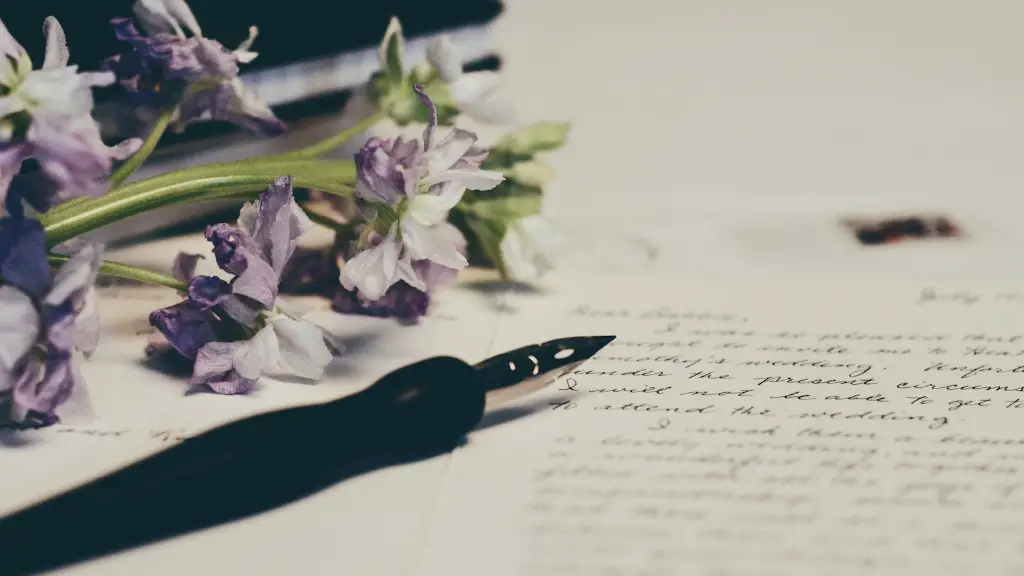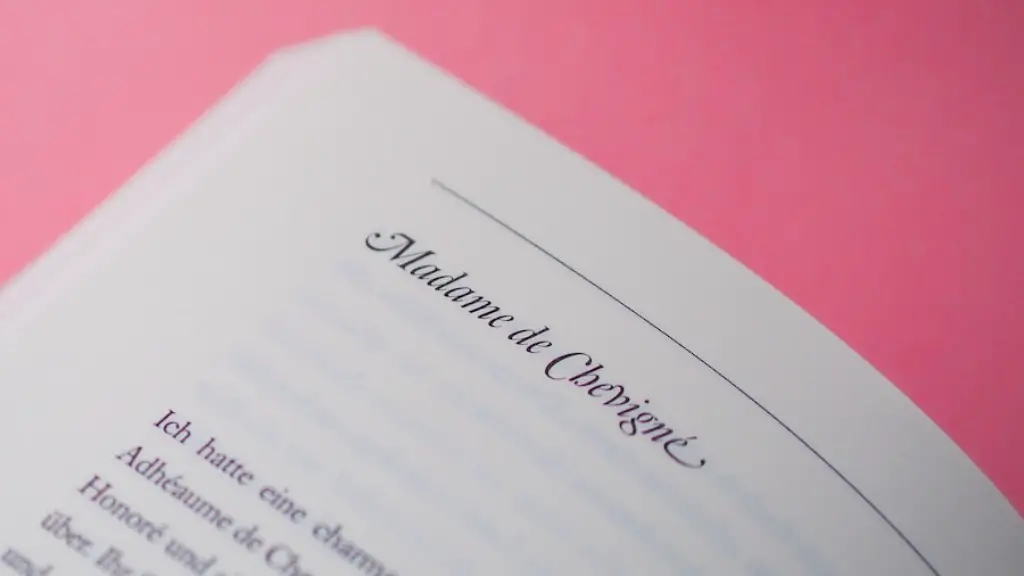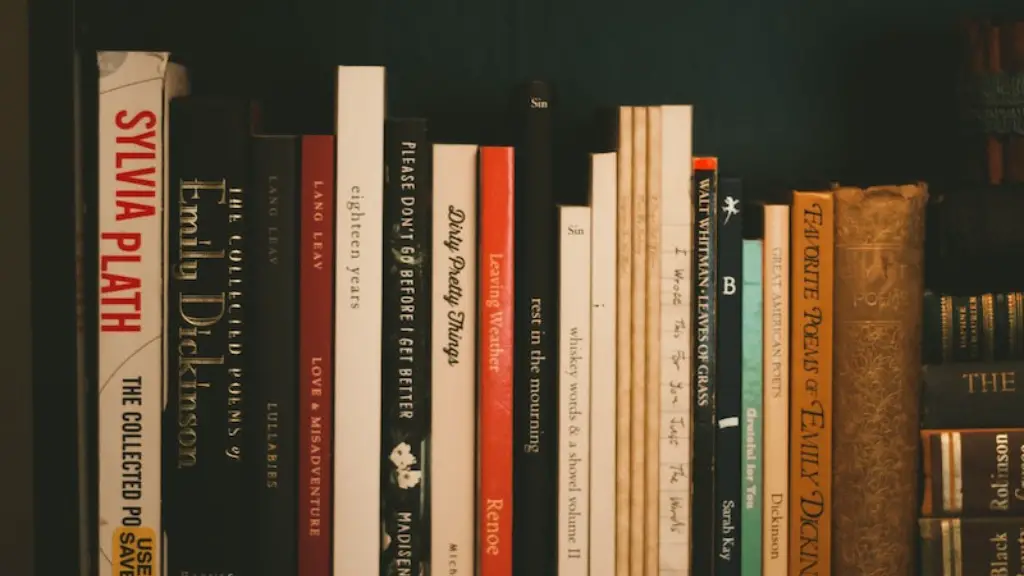Poetry has been at the forefront of human expression since the dawn of civilization. It is a form of expression that has remained relevant in our society to this day. But what exactly inspires the creation of poetic works? There are many different factors that can inform and inspire the creation of a poem. From the personal experiences of the individual, the wider culture and society in which the poet lives, and even the natural world around them, there are endless forces that can shape the writing of a poem.
The personal experiences of the poet as an individual has a great influence on the poems they produce. It can be a unique experience, such as a traumatic event, or a more general experience, such as growing up in a certain area. The way these experiences shape and inform the individual, can then manifest in their work in the form of different themes or motifs. This way, a poet can communicate their own feelings and understanding of the world to their readers, with the help of their personal experiences.
The wider culture and society that the poet is a part of can also influence their views and their writing. Poetry in particular can reflect the issues of the time and be a great way to bring awareness to certain topics. It can call out injustices, celebrate victories, or simply provide a voice to those who are unheard. In this way, the cultural and societal context can be a major driving force in inspiring poetry.
Another inspiring element in poetry is nature. Poetry often pays homage to the natural world, whether through direct description or through metaphor. Nature can be both beautiful and dangerous, and this contrast can be used to great effect in poetic writing. Furthermore, nature often operates on its own rhythms, which can be used to inspire the structure and flow of a poem, as well as the themes and ideas contained within it.
Overall, the inspiration behind any piece of poetry can vary greatly, with a multitude of factors influencing the creation of a work. Whether it is the personal experiences of the poet, the societal context that informs their views, or even the natural world around them, these different factors can all have an impact on a poem, in no small part.
History Of Poetry
The written form of poetry we are familiar with dates back to ancient times. Ancient civilisations such as the Egyptians and the Mesopotamians wrote in poetic form, revealing that the art form is ancient in origin. Poetry from these civilisations offer insights into the worldviews and values at the time. Furthermore, some of the oldest written poems can be found in the writings of Homer and the epic poems of Ancient Greece.
In the Medieval period, poetry became closely entangled with religion and continued to offer insights into the culture and values of the time. A form of poetry that emerged during this period was courtly love poetry, which began as an expression of unreciprocated or forbidden love. This type of poetry continued to grow in popularity, and was taken up again in the Renaissance period. This period saw a resurgence of interest in the literary works of Ancient Greece and Rome, which led to a revival of epic and lyrical poetry in the form of plays and poems.
The advancements of the Enlightenment period saw a flourishing of writing once again, with the Romantic period being particularly influential. This period saw a focus on the emotional and personal, which encouraged writers to explore their individual existence and find inspiration in nature. The 20th century also saw a great proliferation of written works, with numerous different types of poetic writing, from free verse to concrete poetry.
Types Of Poetry
When it comes to classifying the different types of poetry, there is no single agreed upon system of categorization. However, it is generally accepted that there are many different ways of writing poetry. Some of the more established poetic forms include haiku, sonnets and limericks. These three forms of poetry were originally popularised in Japan, Italy and Ireland respectively, but are now popular worldwide.
Another type of poetry is free verse, which is a form of writing that does not follow any kind of established rules or structure. This type of writing allows the poet to express themselves without constraints, letting their imagination and creativity run freely.
Lastly, concrete poetry is a form of visual poetry wherein the words are arranged in a formation that takes the shape of something that the poem is about. This type of poetry can be very unique, as the possibilities for this are almost endless.
Famous Poets
Throughout history, there have been many great poets who have used the written word to shape the way we view the world. Some of the most famous poets, include William Shakespeare, Dante Alighieri, and Emily Dickinson. These individuals have all left an incredible legacy and have greatly impacted the poetic world.
William Shakespeare is considered one of the most influential writers in the English language. He wrote comedies, tragedies and sonnets, which are still widely read today. Dante Alighieri was a great Italian poet and philosopher, who wrote the epic Divine Comedy. The poem offers great insight into the ideas of religion and salvation that were prominent in the middle ages. Emily Dickinson is an American poet, whose writing addressed themes such as death and life, as well as dreams and religion.
The works of these famous poets, as well as other great authors, continues to impact and inspire poets and readers alike.
Popular Poetic Forms
Poetic forms have been hugely popular throughout history, and have seen a resurgence in recent times. One type of poetry that has risen to popularity in recent years, is slam poetry. This type of writing is performed in front of an audience and is usually written with an emphasis on performance and delivery. This form of expression has been used as a tool in many different contexts, ranging from social change to mental health awareness.
Another popular form of poetic writing is spoken word. This type of writing often contains elements of storytelling and can range from the highly personal to the more abstract. This type of poetry often has a performance aspect, although some works can be just as powerful on the page.
The rise in popularity of different poetic forms demonstrates the versatility and appeal of poetry, as well as its ability to connect with readers from different backgrounds. Furthermore, it serves to show just how universal poetry can be and can be used to express unique experiences and values in a powerful way.
Poetic Structures
When it comes to writing poetry, the structure of the poem can add another layer of meaning or emotion. Often, poets will use specific rhyme schemes or forms to help shape the poem and add emphasis to certain aspects. A good example of this is the sonnet, a poem containing fourteen lines, usually written in iambic pentameter. This type of structure allows the poet to explore a singular theme in depth, as well as providing a structured outlet for their ideas.
Another poetic structure that is often used is the villanelle. This type of poem is composed of nineteen lines and consists of multiple refrains throughout. It is often used to explore complex emotions and themes, such as love and loss. Other structures that are often used in poetry can include the sestina, the ghazal, and the haibun.
The use of poetic structures can be a great way to add texture and nuance to a poem, and allow for deeper exploration of a certain emotion or theme. Structures can help the poet focus on their ideas and express them in a powerful and meaningful way.
The Impact of Poetry
The writing of poetry can have a profound effect on the author, as well as those who read their work. It can be used to communicate complex emotions, express perspectives, and provide a voice to those who may not have the opportunity to do so otherwise. Poetry can be a great source of comfort and solace, as well as a powerful tool for advocacy and social change.
Throughout history, it has been used to confront injustice, to celebrate victories, and to explore ideas of love, of death, and of the divine. The power of words to generate emotion and invoke thought is undeniable, and can be seen in the countless works of poetry that have been written over the years.
Poetry can provide solace in sadness, hope in despair and can bring comfort to those who are looking for it. It can also challenge perspectives, create conversation and offer much needed insight into the human experience. In this way, poetry has had an incredible impact on both the poet and the reader, leaving a lasting mark on both.





